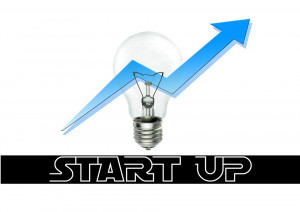In the age of venture capital funding and angel investors, the National Science Foundation NSF has created the Innovation Corps (I-corps) program to promote tech entrepreneurship. It primarily aims to increase the economic impact of academic research projects. Unfortunately, several factors can impede the process of taking scientific research from academic labs to create successful economic ventures. Often, innovations remain stuck in the lab, unable to traverse the “valley of death”, the stage where market validation of a research product or technology is done and prototypes are generated. Absence of appropriate mentors and advisors can prevent a project from getting off the ground. While scientists excel at bench work, they often lack the appropriate training and skill sets required to start a business. The NSF I-corps program is designed to increase networking opportunities at a national level by bringing together scientists, engineers and entrepreneurs. It helps to foster industry and academic collaborations while providing funding at a national and site level to help scientists create prototypes and commercialization strategies. The national I-corps program provides $50,000 in grant money. Anyone with a technology grant funded by the NSF in the past five years is eligible to apply. Participants undergo a seven-week training program which focuses on reaching out to over 100 potential customers to test the market for the technology being developed. For example, the creation of an innovative platform for programming patient-derived stem cells or a laser-based benchtop radio carbon analyzer. This enables scientists to gain intimate understanding of the market to which they want to provide their technology. At the site level, the Rutgers I-corps program provides smaller grants for travel, training/education as well resources required to bring a project to market. The course is shorter with a simpler application process and comprises a team with a scientific lead (usually one or two graduate students), a professor and a mentor often from a business or industry background.

With the advent of national programs like I-corps to encourage the transition of technology from academic research to business start-ups, it was great to meet a Rutgers alum that has succeeded at this task. Dr. Michael Johnson, a recent PhD graduate has been featured in the Forbes 30 under 30 in science list for 2017 and is the co-founder and CEO of a biotech company, Visikol Inc. He started the company while he was a graduate student at Rutgers and spoke about his journey from a PhD candidate to the CEO of a company that manufactures a proprietary reagent which replaces chloral hydrate in order to visualize botanical microscopy samples. The reagent has now been adapted to clear samples for both toxicology (skeletal visualization) and 3D- histology. The company was started with $500,000 venture capital funding and $275,000 NSF Integrative Graduate Education and Research Traineeship (IGERT) fellowship. The fact that Dr. Johnson co-founded a biotech, found investment for the start-up, and graduated with a PhD all at the same time seems like a super-human feat! Thus, he had some great advice regarding how best to go about your graduate career with scientific entrepreneurship in mind. First, the selection of a supportive PhD mentor is crucial. It is also essential to have some understanding of business areas such finance, accounting, and marketing many of which are not a part of regular STEM curriculum. However, the Rutgers Master of Business Science (MBS) program has several such credits that you may be interested in! Dr. Johnson was also involved in several inter-disciplinary projects, which is how he met his Visikol co-founder, Tom Villani. Last but not the least, Dr. Johnson emphasizes the importance of work exposure in the industry (he did a co-op at Johnson & Johnson for 3 years) which provided him with valuable insight into how day-to-day business is handled in the industry. More than anything else, Dr. Johnson insists that getting a PhD is really a way of thinking. When your core scientific competency is combined with other skill sets such as business management, interdisciplinary projects, industry experience, and a supportive mentor, the stage can be set for your entrepreneurial success!